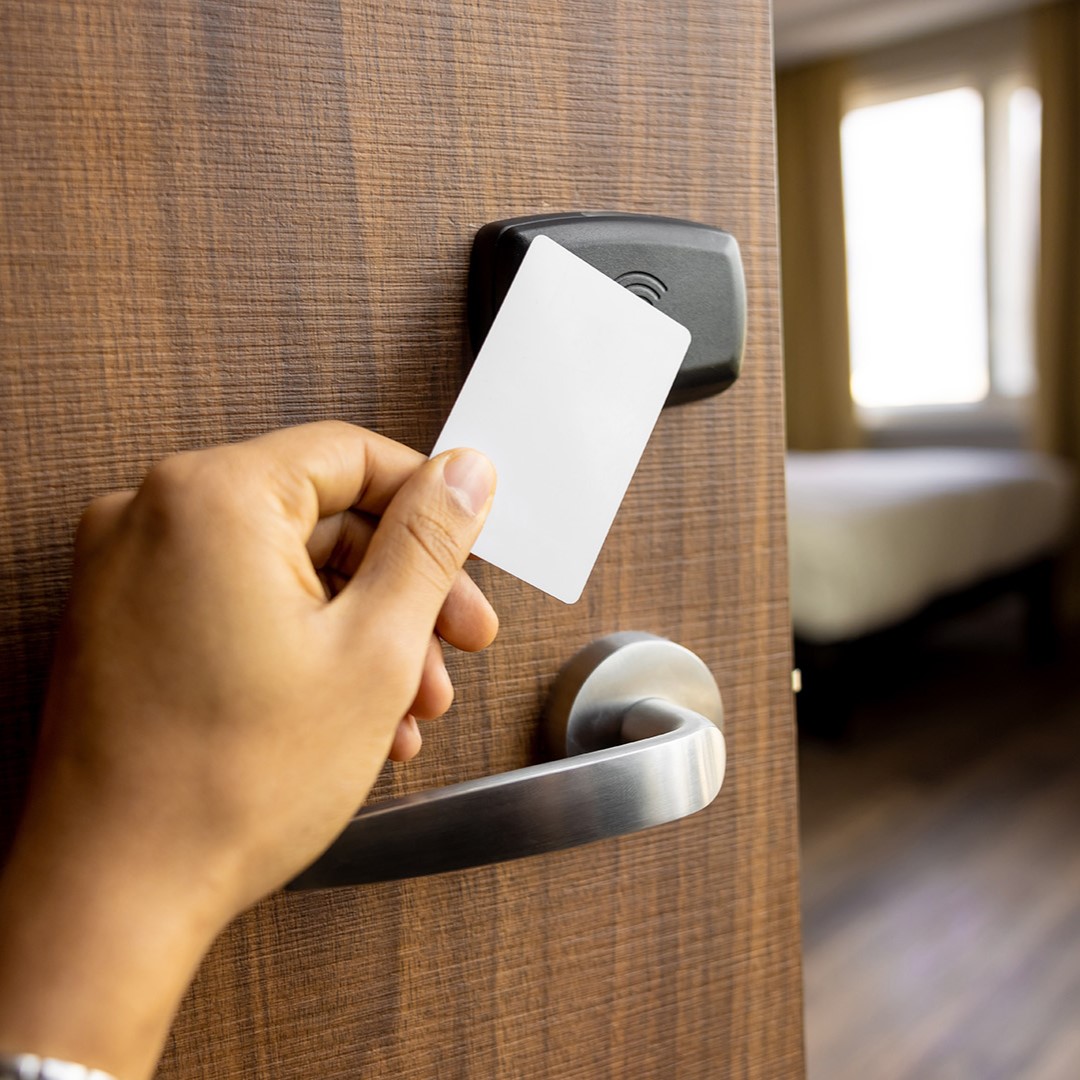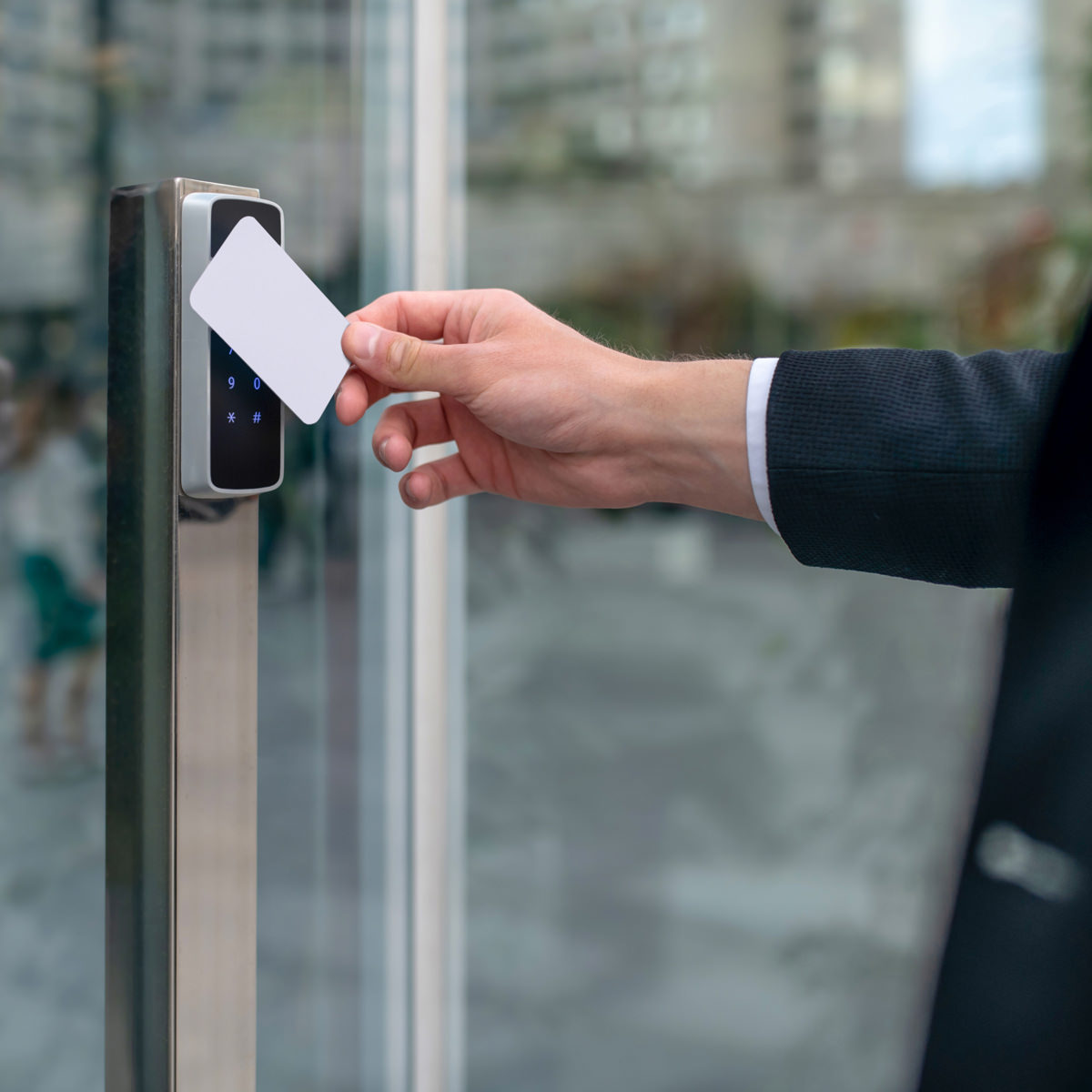CARD MARKETS
At Partitalia, we produce cards for various markets: smart cards for access control and identification at hotels and campsites, companies, gyms, sports federations, schools and universities; loyalty and gift cards for mass-market retail trade and retail; cards for vending machines, used as virtual wallets in the self-service machine sector (vending machines, self-service laundries and car washes, water refilling stations). Going further, we produce cards for charging electric cars at dedicated charging posts and RFID cards for controlled access bins, which are widely used in municipalities applying door-to-door pay-as-you-throw waste collection.
We also guarantee same-day delivery for blank cards and mini-cards in stock, while we deliver all customised and printed cards within just 72 hours after the order is placed. Contact us for an entirely free quote.


HOTEL KEY CARDS
Hotel key cards perform two basic functions: opening the room door and activating the energy saver, the pocket located at the entrance to the room for enabling electricity. Key cards for hotels can act as an electronic purse for payments at the bar, dispensing products from vending machines and other services.
Key cards for hotel rooms can be classified as magnetic stripe cards, contact cards and RFID cards.
CORPORATE ID BADGES
Corporate ID badges are used for access control and attendance tracking: they allow recognition at the entrance of employees and external visitors, ensuring greater security. Additional functions can be integrated into corporate badges, such as digital signature and electronic purse for canteen and vending machines.
The most popular corporate badges for company access control are RFID badges.




LOYALTY CARDS AND GIFT CARDS
Loyalty cards and gift cards are widespread in the Large-Scale distribution and Retail distribution: loyalty cards are used to retain customers with dedicated loyalty programmes, while gift cards offer the possibility of giving a monetary value to be spent within the store.
Loyalty and gift cards are usually made of barcode-printed PVC, or more sustainable materials such as recycled PVC, degradable PVC and paperboard.
SMART CARDS FOR GYMS
Smart cards for gyms are used for access control, allowing customers to be recognised at the entrance or access special areas, such as gym machines or parking. They are also widespread in swimming pools and other leisure facilities, such as water parks, sports and spa centres.
Gym membership smart cards work with different technologies: magnetic stripe, contact chip or contactless RFID chip.




CAMPING CARDS
In campsites and holiday villages, camping cards allow guests to be identified at the entrance and exit, for the entire duration of their stay, and to access accommodation, parking and reserved areas. In addition, they can serve as an electronic purse for showers and hairdryers, bar payments and vending machines.
The technologies used for camping cards are: magnetic stripe, contact chip and RFID chip.
EV CHARGING CARDS
EV charging cards work with RFID technology: simply bring the card close to the charging symbol on the column, which is equipped with an RFID reader, to enable the supply of electricity and recharge the car.
Available in standard ISO format or as a minicard, RFID charging cards for electric cars contain the driver's reference and can be prepaid or postpaid.




SCHOOL AND UNIVERSITY BADGES
The main function of school and university badges is student identification. In addition to this, there are many others, such as access control, student recognition at exams, reservation of books in the library or the electronic purse for the bar or vending machine.
Student badges are made with one or more technologies between magnetic stripe, contact chip and RFID chip.
MEMBERSHIP CARDS
Membership cards are the most versatile solution for the identification of athletes in sports federations, both with regard to access to facilities where training takes place and during federal or amateur competitions. In addition, cards for sports federations allow the club to print out the regulations for using its services.
They are available with barcode, magnetic stripe, contact chip or RFID chip.




WASTE MANAGEMENT CARDS
Waste management cards are used in municipalities applying the PAYT (Pay-As-You-Throw) model. Access-controlled bins are equipped with an upper cap that opens with a smart card, thus enabling user identification and registration of the delivery.
Waste management access cards work with RFID technology: to open the bin, simply place the card on the RFID reader integrated in the container.
VENDING MACHINE CARDS
Vending machine cards are prepaid or postpaid cards, which work as an electronic purse. They contain a credit to be spent in the ATM (Automated Teller Machine) market, which includes self-service laundries, self-service car washes, public water dispensers, and vending machines for dispensing coffee, drinks and snacks.
Cards for vending machines can be classified as: magnetic stripe cards, contact cards or RFID cards.
































